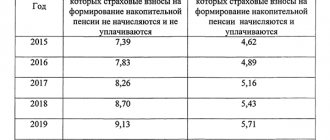Tanzania
Which countries do not have old age pensions? The list opens with the state of Tanzania. This East African country has absolutely no government or social programs to provide for the elderly. The majority of residents are below the poverty line, and mortality is quite high in all age groups of the population. Only five percent of older Tanzanians have the privilege of staying at home and living off their children and grandchildren. And those whose relatives cannot or do not want to support the elderly, or those elderly citizens who, unfortunately, buried children, have to continue working until their death. Thus, 95% of Tanzania's elderly population is forced to work.
But not everyone has even this privilege, because it is extremely difficult for a frail old man to keep his job if there are a lot of unemployed youth around in the prime of life. As mentioned above, there are no social protections for the elderly. That’s why those who were fired because of their age take on any job, even under the most slavish conditions. Many work for a piece of bread and a bowl of stew.
Iraq
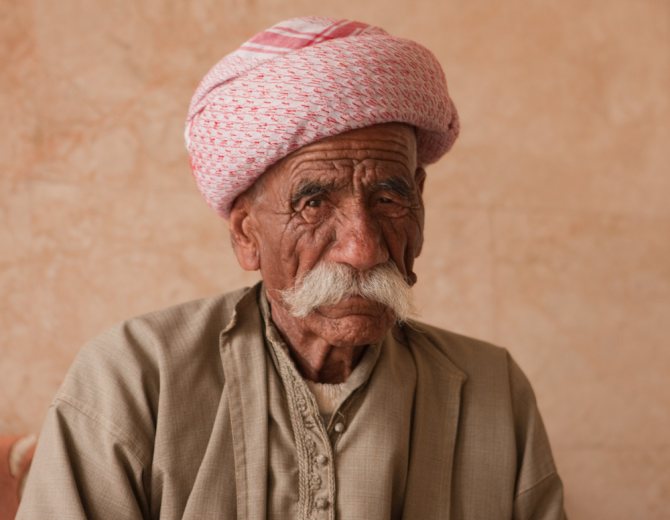
Most often, countries that do not pay old-age pensions have the lowest life expectancy. This is exactly the situation in Iraq. Here, too, there are no government benefits for the elderly, so 80% of residents do not even live to be 70 years old. Out of two hundred countries in the life expectancy ranking, Iraq ranks 136th. Of course, such a low rate is contributed not only by the lack of old-age pensions, but also by the low level of medical care, constant martial law and unsanitary conditions.
Only those elderly people who worked in the oil industry or in the public service can count on pensions here, but only on the condition that the employee made contributions to his future pension for ten years before ending his working career due to old age. If an elderly person does not live to receive payments, the state does not return the amount of contributions even to relatives.
Which countries have good pension provision?
The conditions created by the state for pensioners include not only the amount of benefits, but also the cost of food, real estate and medical care, retirement age, and average life expectancy. Considering all of the above, the following countries are considered the most convenient countries for pensioners to live in.
- Denmark. Here the average pension payment is $2,800. This is the highest figure in Europe, exceeding the cost of living several times and reaching the same level as the average salary in the country.
- Finland. The government creates conditions for people who work in one place for a long time and receive a stable salary. The average benefit is $1,900. Retirement age is 65 years, social programs for pensioners are available.
- Panama. The average pension is $2,000, the retirement age is 57 years for women and 62 years for men. At the same time, there are many benefits for purchasing real estate, receiving medical services and using public transport.
Most countries provide favorable retirement conditions only to people who have worked in their territory for a long time, made regular contributions to the pension fund and received good wages.
Afghanistan
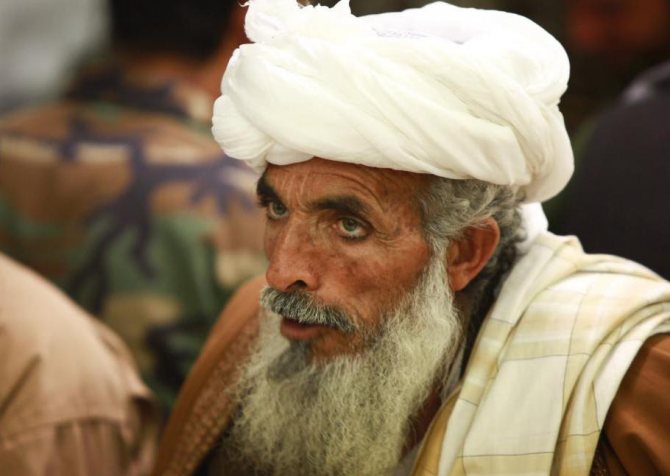
According to the results of the British AgeWatch rating, which was aimed at identifying the best places to live for older people and pensioners, Afghanistan was recognized as the worst place. This is not just a country where there is no old age pension. There is practically no old age here, because the average resident of the state lives to a maximum of 45-50 years. Those who managed to overcome this milestone and live, for example, to 60 years old, will most likely die of starvation, unable to fight and work for the export industry.
External military conflicts, an ongoing civil war, a high crime rate, total illiteracy, poverty, drug trafficking - these are what can be observed in modern Afghanistan. There are no social programs here at all. About 40% of the country's residents are unemployed. The extreme level of economic poverty does not imply the creation of any benefits, benefits or payments.
Pakistan
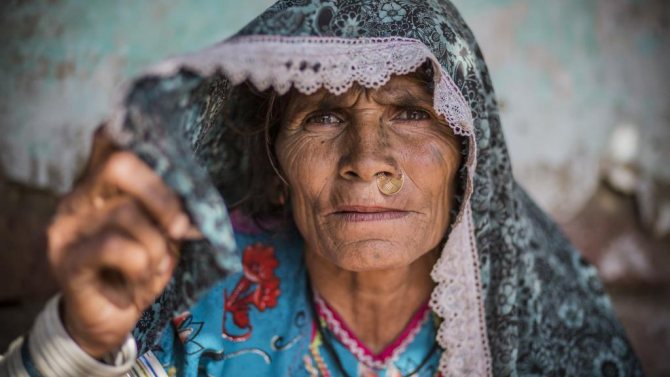
What other countries do not have an old-age pension at all? Pakistan is also on this list. As in Iraq, any willing Pakistani, being young and able-bodied, has the right to save money for his old age by paying contributions. As in Iraq, you need to start doing this 10 years before retirement. But if in Iraq, as mentioned above, workers in prestigious professions can count on a pension, then in Pakistan only those who “bought a pension” for themselves can count on a pension. Why do old people need to make contributions to their old age through contributions to the state, and not save on their own, for example, in a piggy bank? The point here is the fear of being robbed.
Although, when saving independently, an elderly person does not risk losing all his deposits in the event of an unexpected death, he is at risk of losing money during his lifetime. Theft rate in Pakistan is very high. Anyone can easily rob a poor, lonely old man or woman. Thus, in Pakistan, a country that does not provide old-age pension, it is beneficial to save money for your pension yourself by paying contributions to the government.
The trouble in many Asian countries is that they have a predominantly male workforce, and most women are housewives all their lives. Of course, they do not officially work anywhere, so they cannot provide themselves with social protection in old age.
Pension downshifting. Elderly Russians spoke about life in Asian resorts
The bench is not in trend
It can be assumed that the trend for long-distance trips for pensioners was set by the “old traveler” Baba Lena. Of course, pensioners have traveled before. But a 90-year-old woman from Krasnoyarsk literally blew up the Internet with her adventures. Journalist Ekaterina Papina wrote about the old woman on Facebook - she met an elderly traveler in Vietnam. In just one day, the post received more than two and a half thousand likes and more than a thousand reposts.
89-year-old Elena flew to Vietnam from Krasnoyarsk alone and tried to order non-spicy food at a local cafe. The waiter did not understand her - the grandmother did not speak English, and the journalist helped her. It turned out that this was not the first such trip for the old woman. By that time, the woman had already been traveling around the world with a large backpack for seven years. Every year she visits Karlovy Vary to heal for three weeks, and then goes on her next trip. The old lady doesn’t ask anyone for money for such cruises. He says he’s just saving for his retirement and also growing and selling flowers. The traveler has already visited many countries, Vietnam, Thailand, Czech Republic, Germany and the Dominican Republic. Now my grandmother is 91 years old.
If I dream, everything always comes true! Dreaming is not a sin!
Baba Lena was helped to start Instagram. She, as a travel blogger, publishes photos from her travels there. Foreign media wrote about the old woman. Grandma Lena herself considers traveling a reward for a difficult life and long work. “I’m illiterate, I worked all the time at a dairy factory, churning butter. Every year they gave me a ticket, but I couldn’t travel: there was no one to leave the child with, my husband was an alcoholic,” shared Grandma Lena.
Pig and smoked crocodiles
Retirement is the best period for doing things that you didn’t have enough time and opportunity to do while working. This is what Svetlana Pankova decided. She moved to Vietnam and got a black pig, Piglet.
Svetlana is one of those who permanently moved from cold Russia to sunny Asia. She moved to Vietnam after her son, then she was 56 years old. She has been enjoying the sun for eight years now.
My son moved here in 2011. He brought me to see where he lives. I came for a month and stayed: I should have gone back in November, but I decided that it was cold at home and didn’t fly back.
The next year after moving, Svetlana decided to return to Russia for the summer. I arrived at the dacha and planted cucumbers. But I realized that there would be no harvest: “Two weeks at home were enough for me and I wanted to go back to Vietnam. I found tickets and returned to the sea,” said Svetlana.

Photo source: TV channel “360”
The perception of life in Vietnam is changing. Here you treat life exactly as life, and not as survival.
Svetlana’s son surfs, travels “for the wave” around the world and is not with his mother all the time. However, the woman is not alone in a foreign country. The pensioner’s husband also moved closer to the warmth.
The financial issue was resolved gradually. At first, the couple simply began renting out an apartment in their homeland. Later they decided that resting all the time was boring. Then Svetlana went to work at a Vietnamese travel agency. I didn’t speak English, but that didn’t even bother me. The first time was difficult - the woman herself had not been on the excursions offered to her. Sometimes this led to funny situations.
Our friends laughed: “Remember, you sent us to the lotus lake? Have you ever painted it so beautifully? We arrived, and there was one lotus blooming in some swamp.”
Later, Svetlana herself attended all the excursions and gave expert advice. And then - for the first time in my life, I opened my own company - a tour bureau. The Vietnamese, however, did not allow the pensioner to work - inspections and commissions were sent one after another. The traveler had no desire to pay off, and the company had to be closed. The same fate later befell the store that she opened together with her husband: the couple sold smoked fish.
At the moment, Svetlana has returned to the agency where she originally worked. The pensioner also helps her husband, who smokes fish and even crocodiles, although he no longer has his own store: “We walk along the beach, we offer, we advertise,” the interlocutor of “360” explained.
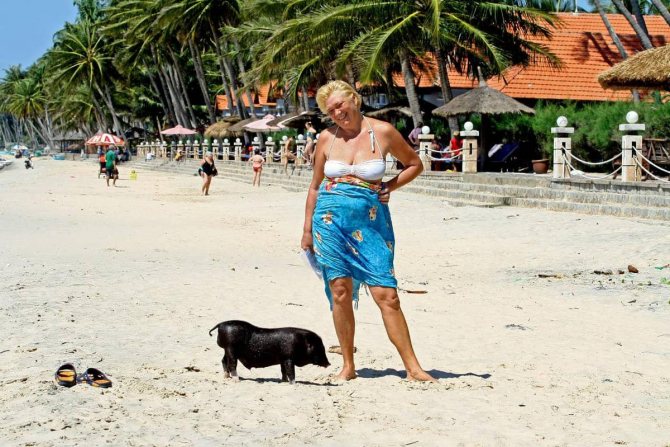
Photo source: TV channel “360”
In Vietnam, Svetlana fulfilled another old dream - she got a pig. And not a decorative one, but a real boar.
“As a child, I watched the film “The Pig Farmer and the Shepherd.” I dreamed of becoming a pig farmer. I liked the piglets so much. Parents, of course, were against it. And then I realized my dream. I bought myself a black pig. They gave me the thinnest one. But he survived with us.”
The brave Russian woman even went to the beach with her extravagant four-legged friend. There Piglet became everyone's favorite among tourists and received treats.
Unfortunately, the friendship with the boar was short-lived. He grew to be the size of a bed and became addicted to beer. The woman did not want to share housing with such a big alcoholic - she had to give it up due to lack of space in the new house. Now the boar lives with a local veterinarian and feels great.

Photo source: TV channel “360”
On the wave
Nikolai Medved (64 years old) and his wife Irina also came to Vietnam. The couple lived in Odessa. The husband worked on computer programs, Irina worked as a doctor. At a fairly conscious age, the couple took up windsurfing. They began to travel to the Crimea to the estuary. Later, we expanded our borders and visited Egypt and Vietnam. Nikolai's wife really liked the latter.
But Irina did not want to lose her job - too much time and effort was invested first in training, then in practice.
We arrived and saw how the artist paints. And Ira said that even the artist could stay here, but she couldn’t. So, we went to a local clinic and agreed to work for Ira.
The local clinic turned out to be an excellent option: “They promised a decent salary, and the Vietnamese language was not a mandatory requirement, but I somehow speak English.”
The difficulties began later. To celebrate the upcoming move, the woman did not prepare the documents necessary for work in her home country, which had to be restored for a long time in Vietnam: the process of getting a job took three or four months.
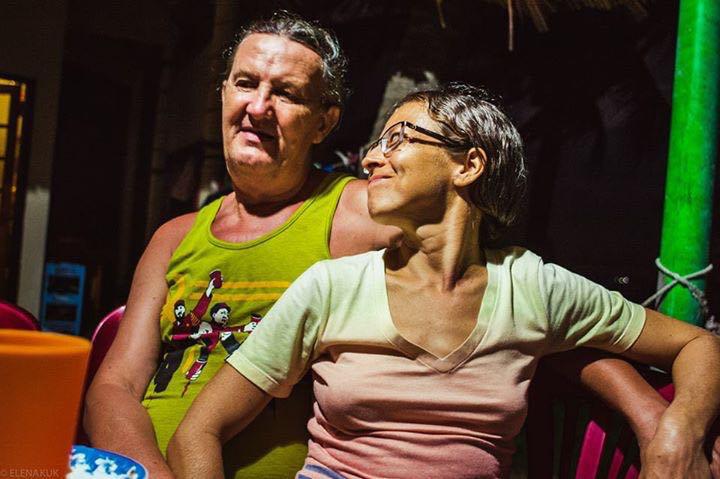
Photo source: TV channel “360”
When everything got better, the couple began to live in a house on the seashore and every day enjoy their favorite activity - windsurfing.
Then Kolya once said: “You know, I rented out your windsurfing equipment.”
So the couple founded a small windsurfing station - rental and training. Nikolai and Irina do not have as much equipment as large entrepreneurs. However, there is one that is even better than at large stations, Nikolai boasts. He calls his main advertisement the very sight of a person skating.
See also: Order 40 MES
“It’s like on the wings of a butterfly. Something magical and light. Very beautiful,” said Nikolai.

Photo source: TV channel “360”
Spiritual development
Some people are attracted to Vietnam for its diversity - not only in terms of recreation and food, but also in its standard of living. There are both luxury hotels and expensive villas, as well as poor areas. Contrast and the opportunity to escape pathos - these two factors forced Nina Scriabina (58 years old) to turn her attention to the Asian country.
When I arrived in Saigon, I saw big houses, this pathos. And below, a woman was sitting on the asphalt, washing plates in a basin. The combination of this pathos and a barefoot woman in pajamas with plates... I decided that this is what I need: you can be whatever you want.
According to the pensioner, she realized that this is where real life is: you can enjoy the sun and not rush anywhere.
And Nina arrived just in a hurry. Both of her sons had lived in Vietnam for a long time. And four years ago, while my mother was in the hospital, one of them decided to get married. Nina was not familiar with her son’s chosen one. I got ready for the wedding quickly. I prepared gifts for the doctors to quickly leave the clinic and went to write my resignation letter. At that time, there were several months left before retirement, and the woman did not want to go back so soon.
“The son quickly got married, then quickly divorced. And I stayed here. For about a year in Vietnam I just painted. For me it was a kind of meditation. I was engaged in spiritual development,” says Nina.
Yoga followed drawing. Well, last summer the pensioner started surfing. The 58-year-old woman holds on to the board and confidently catches the wave. Also in Vietnam, a Russian woman got behind the wheel and started driving a bike; her house is very far from the center.
“I look at the cars and understand that in my past life I still rode motorcycles,” the pensioner emphasized her love for two-wheelers.
The only thing Nina misses is Russian autumn. But the woman knows that at any moment she can come and look at her native yellow leaves.
At home I had four depressions every year: autumn, winter, summer and spring. In summer the melancholy is green, in winter it is white. I was sick a lot. So something had to change
Why Vietnam
360’s interlocutors named several criteria for their choice of country for changing their permanent place of residence. The first point is safety. The Bear spouses are sure of this. Another criterion is financial.
“Housing rent and food are quite affordable here. There are countries where everything is much more expensive. The warm climate also plays a significant role - you don’t need to spend money on heating,” said Irina Medved. Svetlana Pankova also supported her.
According to the Russian woman, in Vietnam you can not spend money all day, since there are no long distances compared to Russia, and thanks to the hot climate, you don’t want to eat a lot and dress warmly.
There (in Russia - editor's note) you can't take a step - you have to pay everywhere: transport (everything is far away), it's cold - the food should be more substantial, and things should be warmer and, accordingly, more expensive. And in Vietnam you can also eat fruit. $500 for two people with renting an apartment is normal.
IDPs also note the ease of moving. They say that all you have to do is buy tickets and make an invitation, which costs “a penny.” You get a visa and that’s it - you can live in peace in the country.
Pickles in Goa
The geography of Russian-speaking pensioners in Asia is not limited to Vietnam. So, Svetlana Kalyavkina chose India, namely the tourist state of Goa. A Russian woman has her own small business there. A woman sells pickles to local residents.
Svetlana buys products for pickles at a local store. Spices, herbs and seasonings are brought from home. After cooking, the woman delivers orders on a moped. Sings songs in Russian. One of my favorites is “And love is like a dream.”
Shweta has already become a local celebrity in Goa. Reviews are written about its products on thematic forums and on social networks; it is recommended to those who, having gone to India for the winter, miss homemade lecho and pickled cucumbers.
Since there are many Russian-speaking travelers here during the season (from November to May), cucumbers and tomatoes go out instantly. Kvass and borscht are also popular. Some Indians are also addicted to them.
Following India's currency reform in 2020, the country faced a cash crunch. When this happened, the entrepreneur decided to abandon the sale for a while due to difficulties with payment. She exchanged goods for bananas and cheese. Accepted payments by bank transfer from tourists - by phone or bank card.
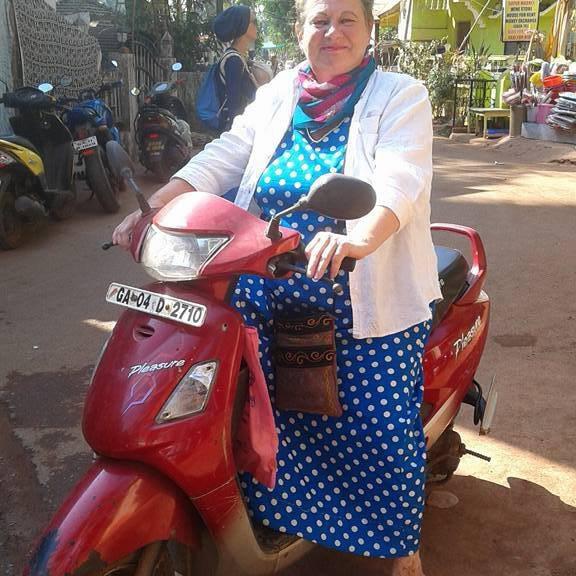
Photo source: vk.com/diznes196208
Do no harm
Pensioners - both in Vietnam and Goa - unanimously talk about their excellent health in a new place. However, doctors warn: a good mood is wonderful, but do not forget about the health risks that a hot climate and advanced age bring. What to pay attention to first and how to avoid negative consequences, general practitioner Viktor Lishin told 360.
According to the specialist, changing the usual lifestyle at an advanced age can lead to stress, and this, in turn, to depression, problems with blood pressure and sugar.
The older a person is, the more susceptible to this. The cardiovascular and respiratory systems are especially sensitive to heat. Of course, you can adapt. But with chronic diseases this is more difficult, perhaps even impossible.
The doctor warned that problems may not appear immediately, but after a while. Victor Lishin advised older travelers to take some familiar household items with them to make it mentally and physically easier to cope with the change of place.
The expert also emphasized that it is necessary to adapt to a new life not radically, but gradually: at first, avoid being in the sun, control fluid intake and blood pressure, which can change even for a healthy person in a hot country, and also do not forget about protective ointments.

Photo source: vk.com/diznes196208
The therapist paid special attention to such a disease as mesenteritis. This is an inflammation of the mesentery, the part of the peritoneum that supports the small intestine. The disease is accompanied by severe intoxication and abdominal pain. Mesenteritis is called “travelers’ disease”, as it is often caused by a change of cuisine. Therefore, Viktor Lishin strongly recommends that for the first time after moving, you refrain from excessive consumption of food that is not familiar to a Russian person, especially when you are older.
According to US News, neither India nor Vietnam are on the list of the best countries for retirees. Just like Russia. Our country took one of the last places in the ranking. Factors taken into account were the availability of infrastructure - including special infrastructure for older people, the quality of food, climate - and the ratio of pensions to average expenses necessary for a comfortable life.
The first three places were shared by New Zealand, Australia and Switzerland. The USA was only in 24th place. Vietnam took 38th place, and India was on 43rd place. However, it can be assumed that for now the number of pensioners who can afford to leave Russia for warmer climes is quite small.
It was not possible to find official statistics on the number of Russian “360” pensioners who left for Asian countries: almost none of the elderly travelers notify the consulates of their arrival in the country and do not register with the consulate.
Nigeria
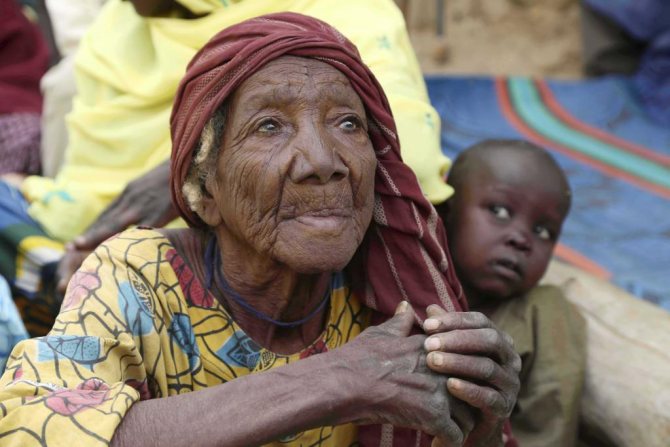
We continue to look at which countries do not have old-age pensions. The same situation as in Iraq and Pakistan is with the elderly people of the state of Nigeria. Unlike most West African countries, it pays a pension to those who work in any formal job. Unfortunately, however, of the eighty million Nigerian workers, only 6 million are employed in the formal services. All others can receive a pension only on the basis of their own contributions to the state. This must be done within 10 years before the expected receipt of pension payments. However, just a decade ago, elderly Nigerians did not have any pensions, even from their own contributions. Therefore, we can say that in this country the situation with social payments is developing in the right direction.
India
What other countries do not have old-age pensions? India is included in this list because only 12% of the population can count on government support after retirement due to old age. These are those who have worked all their lives in public services. This is not to say that these lucky ones get a lot. In terms of our currency, this is only 180 rubles per month. However, against the backdrop of general poverty, especially among the eternally hungry, begging old people, this money allows us to have some kind of food for lunch.
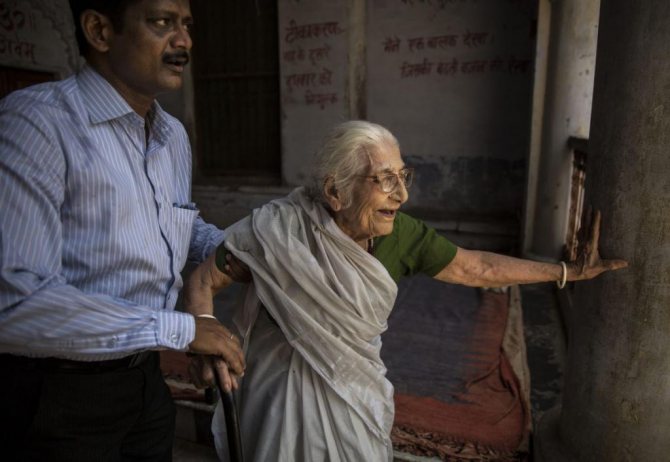
Note that India also occupies one of the last places in life expectancy rankings. Only wealthy Indians or villagers who grow food in the fields can live to be 70-80 years old. To be fair, it must be said that individuals live here to be 100 years old, but there are only a few of them. Such old people survive without pensions due to their ascetic lifestyle, religious hunger and ability to meditate.
China
When answering the question of which countries do not have old-age pensions, China should also be mentioned. As in India, of the entire population of this huge country, only government employees can count on a pension. It happens that in the case of long service or any outstanding achievements, the owners of large companies assign a long-service pension to their elderly employees on their own. But these, of course, are isolated cases. This situation is not fixed at the state level. Therefore, the Chinese are doomed to grow old in poverty, and they most likely manage to live to gray hairs only thanks to knowledge of Eastern philosophy, meditation and compassionate relatives.
What is the reason for this in such an economically developed country as China? Most likely, the state does not benefit from long-livers at all. Overpopulation in China is a well-known problem, so the authorities of this country are not going to support old age in the near future.
Countries without pensions
To begin with, yes, such countries really exist. But their number also includes states in which there is a pension , but is available to a small part of older citizens, as well as those where simply no one can live to see retirement. We will consider both. Let's briefly go through the list:
- China;
- Pakistan;
- Afghanistan;
- Vietnam;
- Tanzania;
- Thailand;
- Nigeria;
- India;
- Iraq;
- Philippines;
- Honduras;
- Turkmenistan (during the time of Turkmenbashi).
You can see that there are quite a few states without pensions (or with limited benefits). This will allow you to go through some of them in more detail, because each country has its own characteristics of calculating pensions. As already mentioned, the percentage of elderly people in the state is of considerable importance:
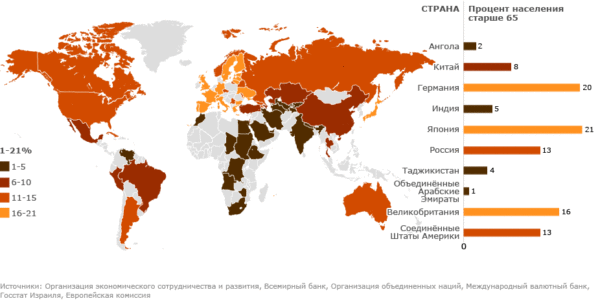
Percentage of elderly people over 65 years of age
China
The largest country in the world by population stands out from the rest in terms of economic and budget growth rates. It’s surprising why pension payments and support for the elderly are treated carelessly here. Thus, pensions are paid only to former employees of government services and major industrial plants. Residents of villages, agricultural communities and small settlements are not entitled to receive payments. This is due to the fact that the urban population is about forty percent , and the authorities are trying to get away from agricultural roots and move to dense urbanization.

Pensions in China are paid only to former employees of government services and major industrial plants.
There are no private pension funds in China - all payments (of which, of course, there are few) are made strictly by the state. There are cases when business owners, at their personal request, make payments to distinguished but retired employees. But not everything is so bad: large social benefits are provided . They really help in everyday life: for example, they reduce the cost of utilities (sometimes they can be canceled altogether) and travel on public transport. In addition, there are discounts in stores for pensioners.
The Chinese are a proud people who respect their traditions, so they treat the elderly with respect. There are practically no elderly people living alone, because families take care of their relatives. It is because of traditions that concern for pensions has faded into the background, and the elderly have a decent standard of living.
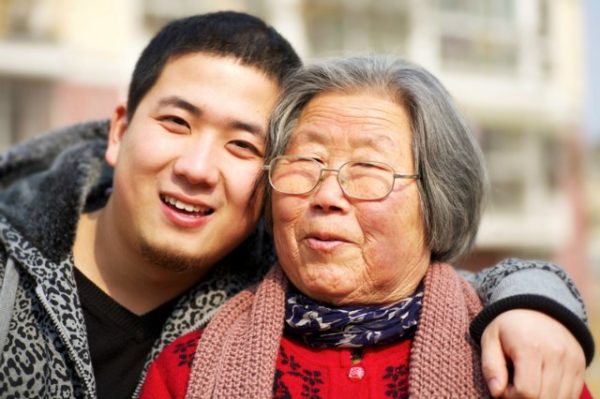
Elderly people are treated with respect in China
Important! In 2020, China is undergoing a reform of the benefit and pension system. As a result, the categories of citizens who have earned an impressive pension have been significantly expanded in large cities.
India
Another of the largest countries in terms of population, India , has a unique pension system. To begin with, do pensions exist there at all? Many believe that they do not exist here at all (except for payments to government employees), but now the situation has changed and continues to improve.
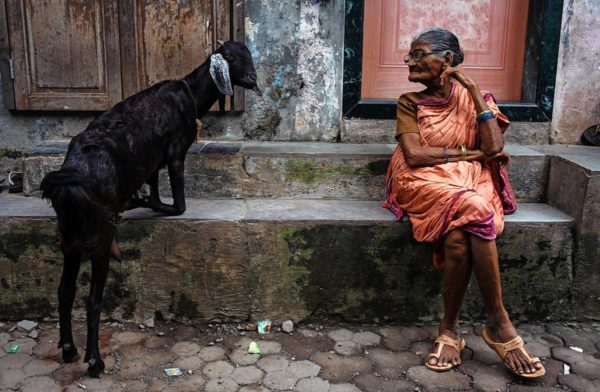
In India, each state sets its own pension amount
Firstly, each state manages pension payments independently, which has led to different conditions in individual regions (there are still states where poverty is rampant and there are no pensions, but in Indore, for example, the standard of living of older people is high), and secondly, In addition to pension payments to civil servants, support programs for ordinary citizens also appeared. Another feature is the system of assistance to the poor and low-income people, called NSAP.
Unlike other pension programs in the country, NSAP is managed by the state itself, and provides financial assistance to citizens in trouble and older people who have worked their jobs. But there is one problem - to receive such payments you need to submit an application, which will be considered by the fund administration. Due to the low standard of living throughout the country, the authorities are forced to make such sacrifices in order to somehow provide for the residents.
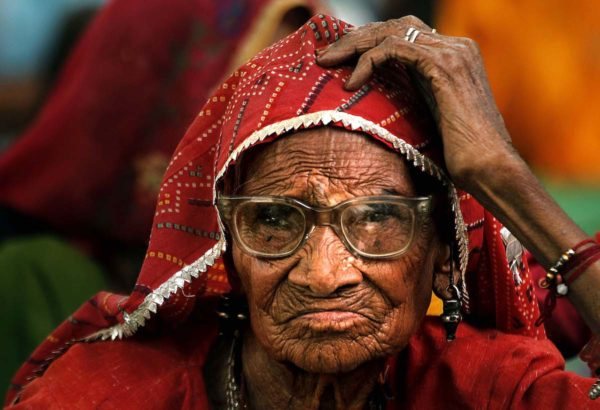
In India, not all pensioners can count on financial support from the state
The improvement of the pension system is in full swing, and now indeed not all pensioners can count on financial support from the state, but over time there are plans to increase pensions and make them available to every resident over 60 years of age.
Vietnam and Philippines
Two Asian countries that are very different from China in their treatment of the elderly and pensions. For example, a country with developed infrastructure and tourism - the Philippines - has a weak pension program with low benefits and an increasing retirement age. This is due to the lack of funds to maintain the pension program. The President of the Philippines even offered to sell his property in order to somehow provide for the elderly residents of his state. An interesting fact is that some elderly people from other countries choose the Philippines for “retirement immigration” - they move here and live out their lives. But this in no way compensates for the problems with pensions among indigenous residents.
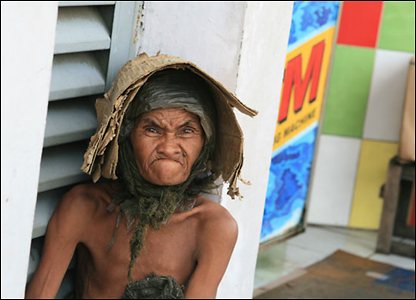
The Philippines has a weak pension program
In Vietnam , newly-minted pensioners learn about the amount of their benefits only after their retirement. These sizes depend on the volume of labor and place of work. Pensions are not that impressive - on average $100 (which is only enough to survive). Only city residents and workers receive pensions - but peasants (of which there are many in Vietnam - this is how it happened historically) and entrepreneurs (both large and small shop owners) cannot count on help.
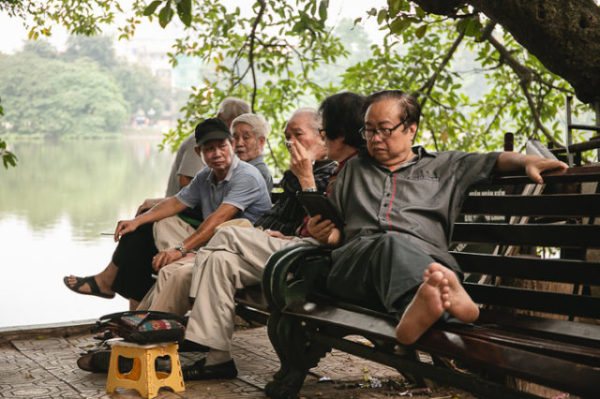
In Vietnam, only city residents and workers receive pensions.
Due to the small size of pensions, there are many working elderly people in this country. This is not even connected with the desire to somehow provide for oneself at this age, but also with the worldview of a typical Vietnamese: as long as there is an opportunity to work, one must work. By the way, in addition to the similarities with China, in Vietnam old people are respected, and they most often live under the same roof with their family.
Iraq, Afghanistan and Pakistan
Due to numerous wars and coups that have shaken up the economy and wealth of Iraq, now old people cannot afford a dignified old age. And what can we talk about if the number of elderly people is very low in itself? And among the few elderly people, only civil servants receive pensions (as in most of the above countries), which forces the rest of the elderly to live with the families of their children and grandchildren.
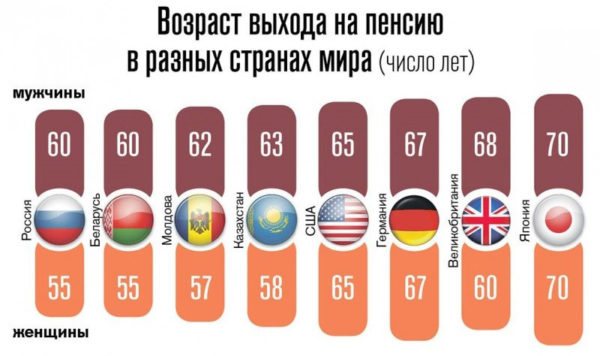
Retirement age in different countries
Another, more depressing example is Afghanistan, also battered by war and drug trafficking. Life expectancy does not exceed 50 years, and there are no pensions at all. The authorities are not even trying to solve this problem - why, with such years of life, when in principle you won’t live to see retirement?
In Pakistan, things are not so bad, but, again, only a small category of citizens can count on pensions. Elderly people can choose the option of a one-time payment in the amount of all funds accumulated during their work (in this case, the citizen is obliged to make contributions independently for at least 10 years in order to ensure his old age). The payouts are not that big, but food prices in Pakistan are low.
Video - How pensioners live in different countries
Thailand
You can often find people who believe that in Thailand, like in India, there are no pensions or they are available only to a limited number of residents. Over time, the situation, as in India, has changed. Yes, indeed, until recent years, payments were available only to officials. Now it is mandatory for every resident to participate in a pension program: part of the salary from the employer + a percentage from the state is invested in the fund, and after 55 years the citizen can count on pension payments. This is still not available to everyone.
And this is due to the huge number of illegal companies. If ten million people work in official firms and employers make contributions for them, then for 20 million no one makes contributions at all. Well, as before, the luckiest people were state employees and officials... as well as elephants! Elephant rights are protected as much as human rights, so elephants can receive pensions after age 60. Elephants require a lot of food (a quintal per day), so 15 thousand baht is spent entirely on feeding the animal. Elephant owners cannot always count on the same support from the government.

Pension for elephants
Tanzania and other countries
Indeed, there are quite a few states on the list where it is more likely that there is a pension than not. Now it’s worth turning to the ranking of the best countries for older people - more precisely, to the anti-rating, where Tanzania ranks first as the country with the worst standard of living for retirees. There is no pension system here. A huge part of older people work until their last days to support themselves. This makes Tanzania one of the few countries where there are truly no pensions (as opposed to those where pensions are limited).
Also worthy of mention:
- Nigeria , where 5% of the elderly can count on government support. However, a small percentage of the population lives to old age - the country has a serious malaria epidemic and a high incidence of AIDS. The prices for medical care are very high, and therefore the mortality rate is higher than in many countries.
- Honduras , where only 4% of citizens over 60 years old count on financial support. The problems are still the same - high morbidity and low life expectancy. Financial problems make this country's pension system severely underdeveloped.
- Until recently, the number of countries without pensions also included Turkmenistan , but after the death of President Niyazov, a decent pension program was created in the country.

5 best and worst countries for retirees
But now let's consider the opposite question - where do old people have the best time?
Thailand
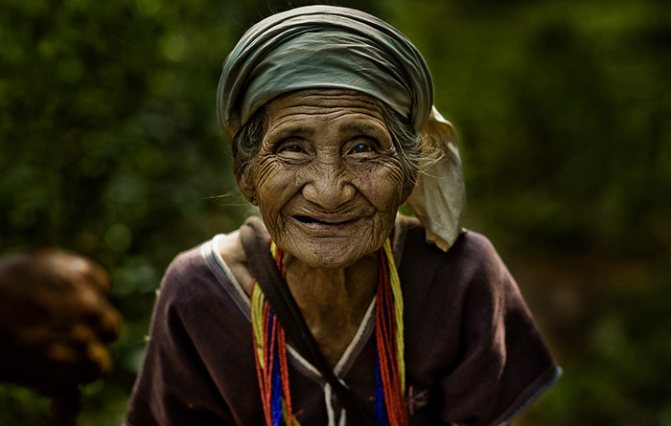
The state of Thailand is not one of the countries that do not have an old-age pension, but this pension is so small that it is simply ridiculous to say. For all elderly residents of Thailand who have grown old unemployed or have worked for less than fifteen years in their entire life, a monthly pension of 700 baht is due. In terms of Russian rubles, this is only about 1,407 rubles per month. Considering prices in this country, we can say that this is very little. Unfortunately, this applies exclusively to officially employed citizens, and there are less than half of them in the country. Everyone else is forced to live into old age with minimal monthly payments.
conclusions
We can name several more countries where a pension program, if it exists, is only for a certain category of citizens. The following fact should be noted: in most cases, residents of rural areas, upon reaching old age, cannot count on financial assistance from the state at all.
For example, in Kenya only 15% of old people can count on it, while in Gambia this figure is slightly better - 20%. Russian pensioners should know this, who, regardless of their region of residence, gender and specialty, can count on monthly payments.
Ghana
Countries that do not have old-age pensions include this West African country. For those who worked, a small pension is paid, but only in cases where the employment was official. The monstrously developed shadow economy in this country has led to the fact that only 10% of elderly Ghanaians receive government support in the form of pension payments. These are those who at one time managed to get a government job or engage in entrepreneurship or farming.
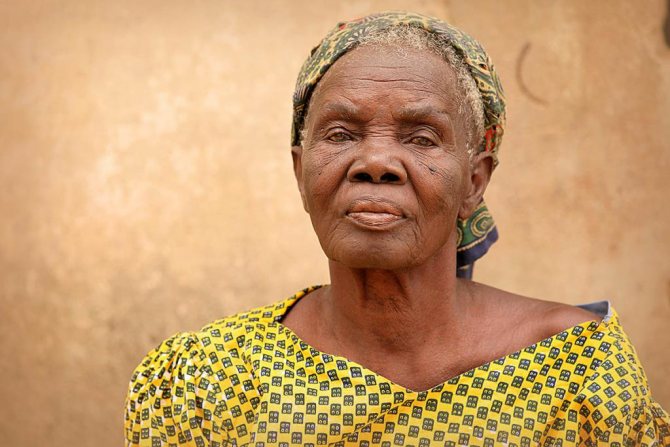
Average pension in Kazakhstan
The highest pensions in the post-Soviet space (with the exception of Lithuania, Latvia and Estonia, members of the European Union) at the beginning of 2020 were recorded in Kazakhstan.
According to official data, in January 2020, the average pension of Kazakhs was 90,502 tenge , or $240 (see current USD KZT exchange rate).
- The number of pensioners in Kazakhstan is 2.190 million (as of September 1, 2019);
- The entire population of Kazakhstan is 18.632 million (as of January 1, 2020);
- The share of pensioners in the country's population is 11.75%.
Kenya
As in Iraq and Pakistan, in Kenya older people who have not previously worked or are working informally can only rely on their own savings through public financial systems to rely on their pensions. However, the situation is not the best for those who worked. Despite the fact that a good regular pension is provided for the elderly, and the retirement age is 55 years old, half of the population does not cross this age threshold. At the same time, the authorities are going to raise the retirement age to 60 years. The HIV epidemic that has been raging in the country for many years has created a situation in which Ghanaians, on average, live up to 59 years.
The same problem exists in another African country - Niger. Despite the fact that this country cannot officially be called a state without old-age pensions, the payment system is practically non-functional. On average, Niger residents live to be 52 years old, and the retirement threshold starts at 55.
Average pension in Ukraine
Like many former Soviet republics, Ukraine cannot boast of high pensions.
The average pension of Ukrainians in January 2020 was 3082.98 hryvnia , or the equivalent of $124.8 (see the current exchange rate at the link Online USD UAH exchange rate chart). This is 1.76 times less than in the neighboring Russian Federation.
Average pension in Ukraine, growth dynamics (UAH):
- 776 – 2008;
- 934 – 2009;
- 1032 – 2010;
- 1,152 – 2011;
- 1,253 – 2012;
- 1,470 – 2013;
- 1,526 – 2014;
- 1,582 – 2015;
- 1,700 – 2016;
- 1,828 – 2017;
- 2,646 – 2018;
- 3,083 – January 2020.
The average pension of Ukrainians from 2008 to January 2020 in national currency increased by 3.97 times.
- The number of pensioners in Ukraine is 11.3 million (01/1/2020);
- The entire population of Ukraine is 41.902 million (01/1/2020, excluding Crimea and a number of regions in the East of the country);
- The share of pensioners in the country's population is 26.97%.





